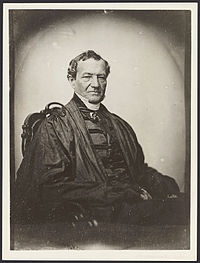Post Author: Bill Pratt
Christians believe that a supernatural being can be reasoned to by working backward from effect to cause. We observe ourselves and we observe the world around us (those are the effects) and we reason that a supernatural cause is the best explanation for the things we observe. This is how almost all arguments for God’s existence work.
Science can shed additional light on what we observe in the world around us, so in that sense science can be employed in arguments for God’s existence. For example, science seems to have shown that the universe had a beginning and that the physical laws and constants that govern the universe are fine tuned for advanced life. Both of these scientific finds are often used in arguments for God’s existence.
Those who hold a naturalistic worldview (the natural world is all that exists) seem to be divided on this subject. Some naturalists deny that science can ever be used to test the existence of God and others affirm that science can test for the supernatural and that those tests have all turned out negative. Still others, like evolutionary scientist Donald Prothero, appear to hold both views at the same time. Consider the quotes below from Prothero’s book Evolution.
Prothero first suggests that scientists “cannot consider supernatural events in their hypotheses.” Why? Because “once you introduce the supernatural to a scientific hypothesis, there is no way to falsify or test it.” He adds that scientists are not allowed to consider God or miracles (i.e., the supernatural) because they are “completely untestable and outside the realm of science.” All right, it seems that Prothero is firmly in the camp of those who say that science cannot say anything about the supernatural.
But in the very next paragraph in his book, he completely reverses course. Prothero explains, “In fact, there have been many scientific tests of supernatural and paranormal explanations of things, including parapsychology, ESP, divination, prophecy, and astrology. All of these non-scientific ideas have been falsified when subjected to the scrutiny of scientific investigation. . . . Every time the supernatural has been investigated by scientific methods, it has failed the test.”
Huh?? Is your head spinning like mine? Prothero first claims that science cannot test the supernatural and then he says that science has tested the supernatural. Which is it? It can’t be both.
I am not pointing this out to poke fun at Prothero, but because I see some skeptics making this mistake over and over again. They want to desperately cling to the claim that science can say nothing about the existence of God (so that they can remove science as a tool in the Christian’s evidential toolbox), but they also desperately want to tell people how science has shown that God doesn’t exist (they retain science as a tool for skeptics to nullify the supernatural). Unfortunately, holding both of these positions at the same time is flatly contradictory. The skeptic must choose one or the other. Either science can test for the supernatural or it cannot.
I have seen this same mistake made in the intelligent design/evolution debate. Evolutionists will claim that Michael Behe’s idea of irreducible complexity is non-scientific or scientifically untestable, but these same evolutionists will then produce scientific research they claim scientifically disproves irreducible complexity! If it’s not scientifically testable, then how are they producing research which scientifically disproves it?
If you’re a Christian talking to a scientific skeptic, watch out for this skeptical two-step. If you’re a scientific skeptic or naturalist, make up your mind which it is, because you are really confusing me.

 In parts
In parts  In parts
In parts  In part 1,
In part 1,